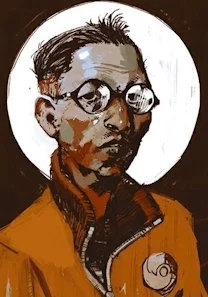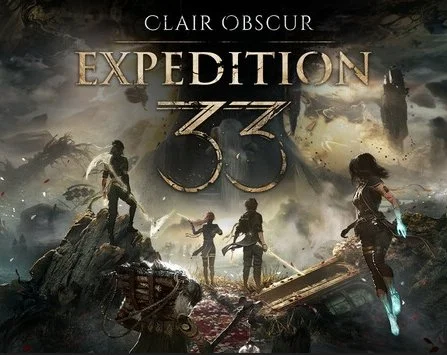Johnny Silverhand: A Psychoanalysis of Cyberpunk 2077’s Iconic Antihero
In the sprawling, neon-lit world of Cyberpunk 2077, few characters shine as brightly—or burn as destructively—as Johnny Silverhand. A rebellious rocker, war veteran, and relentless antagonist to corporate oppression, Johnny is far more than a one-dimensional antihero. Beneath his fiery charisma lies a tapestry of psychological conflict, personal trauma, and existential dread. To understand him is to unravel the psyche of a man torn between idealism and ego, humanity and machine, life and digital eternity.
A Rockstar with a Mission: Johnny’s Core Personality
Johnny Silverhand’s personality is a volatile mix of charm, defiance, and self-absorption. As the frontman of Samurai, the most iconic rock band in Night City, he exudes an undeniable magnetism that draws people to his cause. He embodies the ethos of a rebel: fiercely independent, disdainful of authority, and uncompromising in his beliefs.
But beneath his charisma lies a darker side. Johnny’s impulsivity often leads him to act before thinking, with little regard for the consequences. His cynicism—rooted in his disillusionment with society’s corruption—often spirals into misanthropy, causing him to alienate those closest to him. Johnny is a man who claims to fight for freedom but struggles to empathize with others on a personal level.
In many ways, his idealism is inextricably linked to his ego. Johnny’s crusade against corporate control, particularly his vendetta against the Arasaka Corporation, is as much about justice as it is about proving himself right. His actions are often driven by a need to validate his worldview, regardless of the cost to others.
Haunted by the Past: Trauma and Its Impact
Johnny’s psychological complexity is rooted in the traumas he has endured. His service as a soldier in the Central American conflicts left deep scars, both physically and mentally. Witnessing the horrors of war instilled in him a deep mistrust of authority and a hatred for institutions that exploit human lives for power. This disillusionment became the foundation of his radicalism, fuelling his transformation from soldier to rockstar revolutionary.
However, the most defining trauma of Johnny’s life was the loss of Alt Cunningham, the woman he loved. Alt, a brilliant netrunner, was abducted and used by Arasaka in one of their unethical experiments. Johnny’s failure to protect her—coupled with the role his own recklessness played in her capture—left him burdened with guilt. Alt’s loss wasn’t just personal; it became symbolic of everything Johnny despised about the corporate machine, intensifying his drive to destroy Arasaka.
Johnny’s death during the assault on Arasaka Tower and his subsequent resurrection as a digital engram further fractured his psyche. Now existing as a copy of his former self, he faces an existential dilemma: Is he still Johnny Silverhand, or just a shadow of the man he once was? This question gnaws at him throughout Cyberpunk 2077, shaping his interactions with others and his quest for meaning in a digital afterlife.
Defense Mechanisms: Johnny vs. Himself
Johnny’s psychological defence mechanisms often reveal his internal struggles. His anger at the world frequently manifests as projection, blaming others—corporations, authority figures, even his friends—for the failures and losses he can’t face within himself. This is most evident in his intense hatred for Arasaka, which, while justified, often feels like an outlet for his own self-loathing.
He also relies heavily on rationalization. Johnny justifies his most extreme actions, such as the bombing of Arasaka Tower, as necessary evils in the fight for freedom. However, this rationalization masks the collateral damage his decisions cause, including the lives lost and the strain placed on his relationships. Denial is another key defence mechanism; Johnny often refuses to acknowledge the full extent of the harm he’s caused, particularly to those who care about him.
The People in His Orbit: Johnny’s Relationships
Johnny’s relationships serve as mirrors, reflecting both his strengths and his flaws. His love for Alt Cunningham reveals his vulnerability and capacity for deep connection, but it also highlights his inability to balance personal relationships with his ideological crusade. His failure to save Alt wasn’t just a loss; it was a stark reminder of his limitations, a wound that never healed.
His interactions with V, the protagonist of Cyberpunk 2077, are equally complex. Initially, Johnny’s domineering and dismissive attitude toward V suggests an inability to see others as equals. However, as their shared journey unfolds, Johnny begins to soften, displaying moments of empathy and genuine care. This evolution hints at his potential for growth and redemption, even in his digital form.
Johnny’s relationships with his bandmates in Samurai and his on-again, off-again lover Rogue also paint a picture of a man who inspires loyalty but struggles to maintain it. While his charisma and passion draw people to him, his ego and self-destructive tendencies often push them away. Yet, despite these flaws, those closest to him recognize the sincerity of his ideals, even when his methods are questionable.
Existential Dread: Johnny’s Struggle with Identity
Few characters embody existential themes as powerfully as Johnny Silverhand. His death and resurrection as an engram raise profound questions about the nature of identity and humanity. Is Johnny still "alive," or is he merely a digital echo of a man who once existed? This existential crisis permeates his interactions with V and his outlook on the world.
Johnny’s obsession with legacy is another manifestation of his existential dread. He wants to be remembered not just as a rockstar or a revolutionary, but as someone who made a difference. His vendetta against Arasaka is as much about leaving an indelible mark on the world as it is about justice. This need for significance drives him, but it also blinds him to the ways in which he could find meaning in smaller, more personal acts.
A Path to Redemption: Johnny’s Transformation
One of the more subtle aspects of Johnny’s character journey is his capacity for change. Over the course of Cyberpunk 2077, he begins to confront his flaws and take responsibility for his actions. He begins to acknowledge the harm his ego has caused and makes efforts to reconcile with V and others he has wronged.
This journey toward redemption is not linear or easy, but it is deeply human. Despite his flaws, Johnny’s struggle to become a better version of himself reminds us that even the most broken individuals are capable of growth and redemption.
Theoretical Perspectives on Johnny Silverhand
From a psychological perspective, Johnny’s character can be analysed through several frameworks:
Freudian Analysis: Johnny’s impulsive actions reflect a dominance of the id, while his rationalizations suggest a struggle to reconcile his ego with the moral demands of his superego. His internal conflicts often stem from this imbalance.
Existential Psychology: Johnny’s existential dilemmas—freedom, responsibility, and the search for authenticity—align closely with existentialist thought. His digital existence poses profound questions about identity and what it means to be human.
PTSD Framework: Johnny’s aggression, mistrust, and emotional volatility can be understood as symptoms of post-traumatic stress, rooted in his experiences as a soldier and the loss of Alt.
The Many Faces of Johnny Silverhand
Johnny Silverhand is far more than just a character in Cyberpunk 2077. He is a study in contradictions: idealistic yet cynical, charismatic yet self-absorbed, deeply flawed yet capable of redemption. His journey forces players to confront questions about identity, mortality, and the consequences of our actions.
Simply Put
In the end, Johnny’s story is a testament to the human capacity for both destruction and growth. Whether you see him as a hero, a villain, or something in between, one thing is certain: Johnny Silverhand is a character who will stay with you long after the neon lights of Night City fade.







